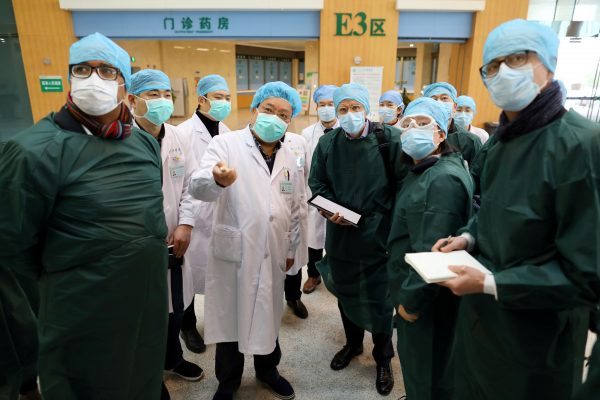The decision will likely constrain the WHO’s ability to tackle the pandemic at a time when it needs all the resources and help it can get. While the United Kingdom and other European countries have not followed the United States, there is a danger that the politics of COVID-19 will inflict further damage to the WHO, on which many developing countries rely for support. The United States has now moderated its stance and set new conditions for reform if it is to resume funding to the WHO. And the Australian government has called for the WHO to be given enhanced powers to avoid pandemic repeats.
The United States is the largest donor to the WHO, making up 14.67 per cent of all voluntary contributions. Between 2018 and 2019, the United States contributed US$890 million to the WHO. China contributed US$86 million over the same period — less than 10 per cent of the amount contributed by the United States.
A pandemic requires global health action that only the WHO can provide. This is not to deny the need to address concerns in developed countries that the WHO is unduly influenced by China. Just as the US decision to suspend funding is likely to undermine the WHO’s current fight against COVID-19, so does the current perception in the West of the WHO’s proximity to China.
In a joint statement issued on 25 March, the World Bank and the IMF called on all bilateral creditors to suspend debt repayments for International Development Association (IDA) countries that are home to two-thirds of the world’s population living in extreme poverty. While this is a welcome initiative, there is a more immediate need to contain the spread of the virus that has already claimed over 290,000 lives and is set to claim many thousands more. The role of the WHO is crucial in this. Global health initiatives must accompany, and some will argue even precede, global economic initiatives.
The World Bank and the IMF have a high public profile that is not enjoyed by the WHO. Though the WHO is a UN agency, its governance structure is different from that of the UN. The WHO’s supreme decision-making body is the Health Assembly consisting of representatives from all 194 member states, each of whom has a vote. There is a mismatch between the organisation’s concentrated resource base and its decentralised decision-making.
Another reason for the WHO’s lacking international profile is that health has not figured as prominently as unemployment and poverty in national and international agendas. But with rich countries struggling to get ventilators, ICU beds and PPE for their health personnel to meet the needs of the hour, one shudders to think what will happen in the world’s poorest countries in Africa and Asia when COVID-19 reaches them.
The WHO has many current programs fighting COVID-19. In Africa, the WHO’s initiatives include buying and shipping PPE — 580,000 surgical masks, 62,000 gloves and other forms of protective equipment urgently required by frontline health workers. It is also working to strengthen laboratory capacity to detect infections, providing information to the public and building overall healthcare capacity to respond. Some of the work the WHO is doing to tackle the current crisis is based on community platforms and mechanisms that were set up to respond to the Ebola outbreak.
The WHO is also playing a crucial role in Southeast Asia by providing technical guidance, laboratory capacity strengthening for testing, equipment for hospitals and healthcare workers, and is continuing to raise awareness and address misinformation. The WHO is working closely with the Bangladesh government to formulate a health emergency response plan and post-pandemic socio-economic recovery assistance. The trust that the WHO enjoys among Bangladesh’s NGOs is proving crucial to the success there.
Once infection rates stabilise, attention must turn to managing the transition out of lockdown without risking a spike in infection rates. The WHO must be actively involved by requiring its health professionals to work closely with national governments and employment outlets to devise an optimal strategy for the transition. Apart from being a global health network containing a pool of unmatched medical expertise, the WHO has a particular advantage in that it is trusted by NGOs whose cooperation in fighting COVID-19 is crucial.
The world has won some hard-fought battles to control COVID-19, but the next phase is equally challenging.
Ranjan Ray is Professor of Economics at Monash University.
This article is part of an EAF special feature series on the novel coronavirus crisis and its impact.

